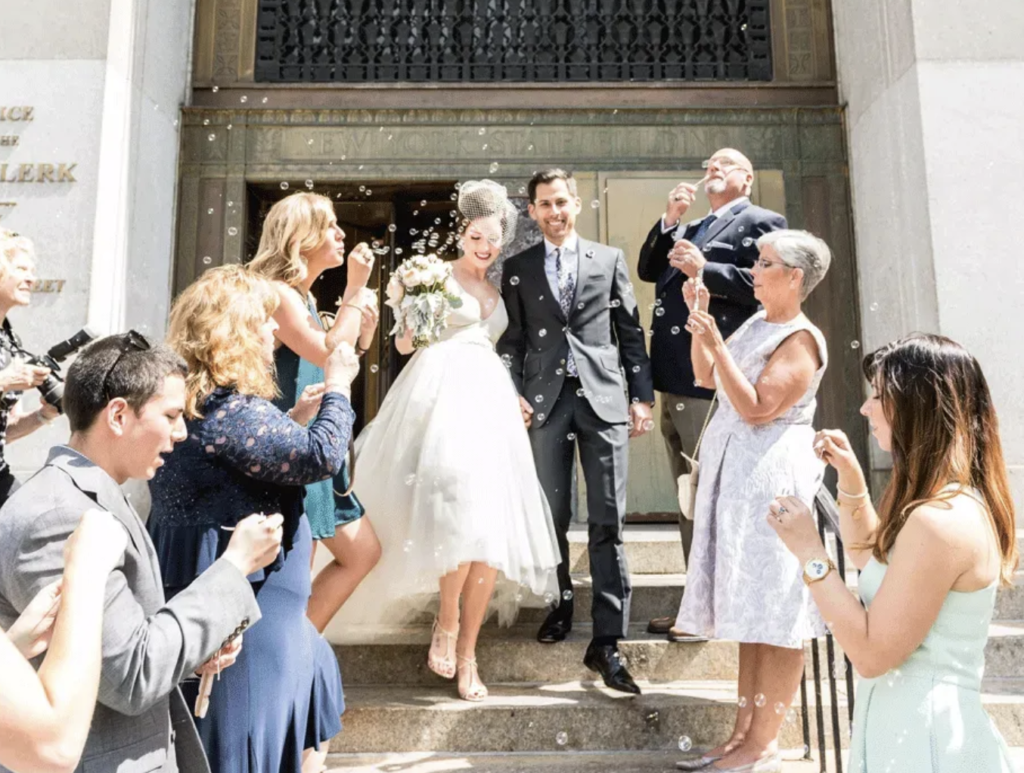
Can You Have Guests at a Courthouse Wedding?
Yes, you can have guests attend your courthouse wedding, but the number allowed is usually limited. Courthouses restrict capacity for safety reasons, so often only immediate family like parents, siblings, and grandparents are permitted.
The exact number varies by location, but is often around 4-10 guests. You’ll need to check the specific rules for the courthouse where you’re getting married. If you want more guests, you can have a small reception or ceremony elsewhere to include everyone. With some limitations, you can still share your special day with loved ones at a courthouse wedding.
Be sure to reach out to the courthouse you plan on having your wedding at to confirm how many guests are permitted to attend.
How Many Guests Can you Have at a Courthouse Wedding?
The number of guests allowed at a courthouse wedding varies by location and is usually quite limited. Most courthouses restrict capacity for fire safety reasons, with many allowing only 4-10 guests. Some may permit up to 20 close family and friends.
To determine the guest limit, check directly with the courthouse where you plan to get married – their website should state the policy or you can call their office. If you want more guests present, consider having a small ceremony at the courthouse followed by a reception at a restaurant or venue with no capacity restrictions. With some creativity, you can still celebrate with all your loved ones despite courthouse guest limits.
Is There a Ceremony at a Courthouse Wedding?
Yes, there is typically a ceremony at a courthouse wedding. The ceremony is brief and simple, led by a judge or other courthouse official. Vows are exchanged, rings may be traded, and the marriage is solemnized. Though short, it retains the core elements of a wedding ceremony.
Courthouse ceremonies usually last 10-15 minutes. They take place in a small courtroom or office with the couple and witnesses present. Some courthouses allow a few guests, while others only permit the couple and required witnesses. Couples can customize courthouse weddings with personal vows, music, or readings. Despite its brevity, a courthouse ceremony makes the marriage official and legally binding.
How Much Does it Cost to Have a Courthouse Wedding?
The cost of a courthouse wedding can vary greatly depending on the state and county, whether you bring your own officiant, and if you hire a photographer. At a minimum, you’ll need to pay the marriage license filing fee which ranges from $30-$150 typically. Some courthouses charge additional ceremony fees of $25-$75.
Hiring an outside officiant usually costs $200-$500. Professional photography ranges from $300-$2,000. Overall, a basic courthouse wedding with just the licensing fee can be under $100, while a more elaborate one with an officiant and photographer could be $1,000 or more. The costs add up but courthouse weddings are still usually much less expensive than traditional weddings.
Final Thoughts
Though courthouse weddings have guest limits and simple ceremonies, they allow couples to make their unions official for less cost. By understanding the guest policies, ceremony format, and pricing at your local courthouse, you can plan a small legal wedding with your closest loved ones present. Embrace the intimacy and convenience of tying the knot at the courthouse.


